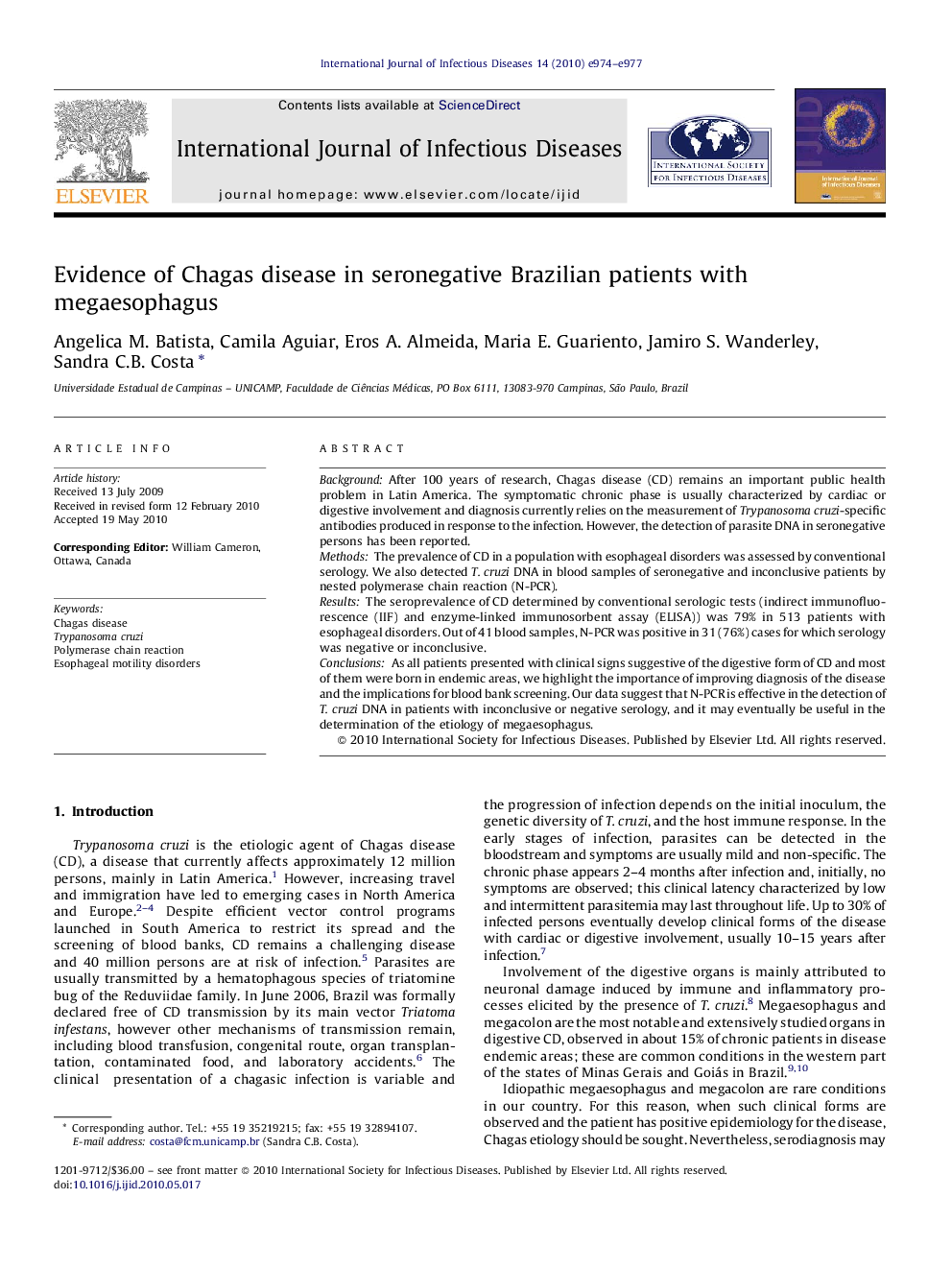| Article ID | Journal | Published Year | Pages | File Type |
|---|---|---|---|---|
| 3363818 | International Journal of Infectious Diseases | 2010 | 4 Pages |
BackgroundAfter 100 years of research, Chagas disease (CD) remains an important public health problem in Latin America. The symptomatic chronic phase is usually characterized by cardiac or digestive involvement and diagnosis currently relies on the measurement of Trypanosoma cruzi-specific antibodies produced in response to the infection. However, the detection of parasite DNA in seronegative persons has been reported.MethodsThe prevalence of CD in a population with esophageal disorders was assessed by conventional serology. We also detected T. cruzi DNA in blood samples of seronegative and inconclusive patients by nested polymerase chain reaction (N-PCR).ResultsThe seroprevalence of CD determined by conventional serologic tests (indirect immunofluorescence (IIF) and enzyme-linked immunosorbent assay (ELISA)) was 79% in 513 patients with esophageal disorders. Out of 41 blood samples, N-PCR was positive in 31 (76%) cases for which serology was negative or inconclusive.ConclusionsAs all patients presented with clinical signs suggestive of the digestive form of CD and most of them were born in endemic areas, we highlight the importance of improving diagnosis of the disease and the implications for blood bank screening. Our data suggest that N-PCR is effective in the detection of T. cruzi DNA in patients with inconclusive or negative serology, and it may eventually be useful in the determination of the etiology of megaesophagus.
